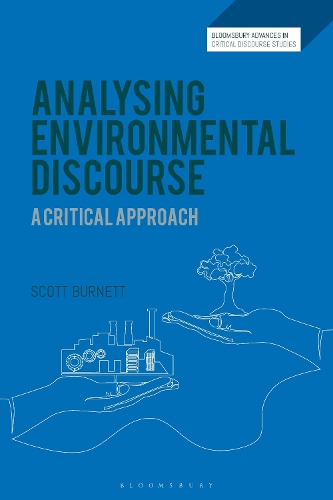
Analysing Environmental Discourse: A Critical Approach
(Hardback)
Publishing Details
Analysing Environmental Discourse: A Critical Approach
By (Author) Scott Burnett
Bloomsbury Publishing PLC
Bloomsbury Academic
5th March 2026
United Kingdom
Classifications
Professional and Scholarly
Non Fiction
Semantics, discourse analysis, stylistics
Climate change
Physical Properties
Hardback
304
Width 156mm, Height 234mm
Description
The sheer scale of global ecosystem devastation and the crescendo of the climate crisis may serve as good reasons for scholars and commentators to welcome any social mobilization that tries to save the earth. And yet not all environmentalisms are good environmentalisms. From eco-fascism to greenwashing and neoliberal conservation, not all green action has a positive value. Offering a critical framework for discourse analysts to get to the heart of this specific complexity, this book is a study of the key discursive moves in environmentalist discourses that perpetuate social inequality, putting forward an alternate socioecological approach to avoiding these pitfalls.
While debates over the social visions and implications of environmentalist discourse have been raging for decades, they have yet to receive focused attention within critical discourse studies. This book addresses this gap, building on critiques from feminist, queer, anti-racist, Indigenous, and decolonial scholars across fields such as political ecology, environmental sociology, indigenous studies, human geography, literary theory, environmental communication, and others, in which the tropes, strategies, and structures perpetuated within strands of environmentalism are identified. In doing so, it brings forward new case studies, focused discourse analysis, and a socioecological normative framework to map out discursive formations. Special attention is paid to the whiteness and/or coloniality of ecological futures articulated as utopian social visions, and it is argued that only when combined with a radical vision for social justice are these environmental utopias desirable, attainable, or workable.
Author Bio
Scott Burnett is Associate Senior Lecturer in the Department of Applied Information Technology at the University of Gothenburg, Sweden, and Associate Researcher at the Wits Centre for Diversity Studies, University of the Witwatersrand, Johannesburg.
